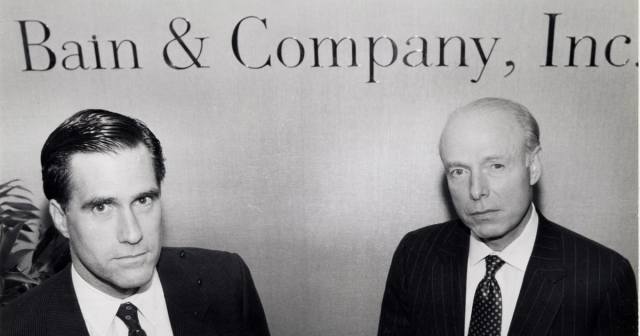
This was something I wrote during the 2012 presidential election, on a criticism of Mitt Romney that was probably forgotten minutes after the think pieces were written.
There were legitimate complaints with Romney’s numbers regarding the number of jobs he claims to have created for the companies he worked for. But it seems moronic to criticize him for potential job losses at competitors’ companies, as Paul Krugman did in a column during the election.
In any case, it makes no sense to look at changes in one company’s work force and say that this measures job creation for America as a whole.
Suppose, for example, that your chain of office-supply stores gains market share at the expense of rivals. You employ more people; your rivals employ fewer. What’s the overall effect on U.S. employment? One thing’s for sure: it’s a lot less than the number of workers your company added.
Better yet, suppose that you expand in part not by beating your competitors, but by buying them. Now their employees are your employees. Have you created jobs?
Scott Hellman and Michael Kranish made a similar point in a Vanity Fair piece, quoted by Andrew Sullivan.
Assessing claims about job creation is hard. Staples grew hugely, but the gains were offset, at least partially, by losses elsewhere: smaller, mom-and-pop stationery stores and suppliers were being squeezed, and some went out of business entirely.
It wasn’t Mitt Romney’s responsibility to take care of his opponents.
But when one company does well, the competitors do better. It’s no coincidence that many of the highest ranking rock albums came from the late 1960s, when everyone was inspired by and trying to top the other guys. Bob Dylan’s Highway 61 Revisited, was followed by Revolver by the Beatles, which was followed by Bob Dylan’s Blonde on Blonde, which was followed by the Beach Boys’ Pet Sounds, which was followed by the Beatles’ Sgt. Pepper’s Lonely Hearts Club Band. Robert Stevens summed it up, writing for, er, the World Socialist Web Site.
One gets the definite sense that Wilson’s achievement on Pet Sounds literally opened the sonic sluice gates for the Beatles and everyone else who heard it. Upon listening to any Beatles album after 1966, you can hear and feel the influence of Brian Wilson. “Back in the USSR” from the Beatles’ White Albumis probably the most famous example of them seeking to emulate the Beach Boys style, but it is also indelibly there on many of their other songs and later work.
The influences were reciprocal. It was upon hearing the 1965 Beatles albumRubber Soul that Wilson felt compelled to produce a work of uniform quality that would stand comparison. He said of the album, “I really wasn’t quite ready for the unity. It felt like it all belonged together. Rubber Soul was a collection of songs … that somehow went together like no album ever made before, and I was very impressed.”
In some cases, innovators destroy their competitors. In other situations, the innovators inspire their competitors to do better work. The bad stuff isn’t the fault of the original innovator.
Advertisements Share this:






